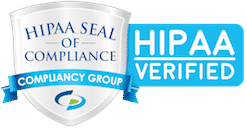Emme is a HIPAA-compliant company and your data privacy is our priority. Read more here.
Types of Birth Control Pills: Common Brands & What to Expect
First approved for use in the US in 1960, the birth control pill is still the most common method of birth control used by American women: in 2014, 25% of women in the United States who were using contraception relied on the pill. The pill prevents pregnancy using hormones similar to those made naturally by your body. Modern pills contain either one or two types of hormones: some pills contain a combination of the hormones estrogen and progestin (a type of progesterone), and others only contain progestin. No matter what kind of pill you choose, you have to take it on time, every day for it to be effective at preventing pregnancy.
Combined Hormonal Contraceptives (CHCs)
Common brands: Alesse, Levlen, Ortho Tri-Cyclen, Loestrin, Ortho-Novum, Estrostep, Lessina, Levlite, Aviane, Levora, Lo/ovral-28, Aranelle, Natazia, Enpresse, Mircette, Apri, Yasmin, Nordette, Yaz
Combined Hormonal Contraceptive pills (CHCs) contain the hormones estrogen and progestin. This combination of hormones prevents your ovaries from releasing eggs, and also causes your cervical mucus to thicken, making it more difficult for sperm to reach an egg should ovulation occur. Most packs of CHCs contain a mix of “active” pills, which contain hormones, and “inactive” or sugar pills, which don’t contain hormones. Taking the inactive pills makes the hormone levels in your body drop, causing you to experience bleeding similar to a period. Some people like to skip the inactive pills and continue taking the active pills of the next pack, which makes them skip their period. Some brands of pills have more than 28 pills in one packet, which can help people have periods that are further apart.
There are many different kinds of CHCs, which contain different combinations of hormones. Monophasic pills have the same ratios of estrogen and progestin in every active pill in the pack. Multiphasic pills have different ratios of estrogen and progestin between pills and are less commonly used.
Some people like using CHCs because they can make periods lighter, less painful, and more regular. They can also reduce your risk of getting ovarian or endometrial cancer! However, CHCs can also cause mood swings, breast tenderness, and nausea, especially in the first few months, though you can try switching to a different kind of pill if these side effects don’t go away. CHCs aren’t a good choice if you have certain health conditions that mean you can’t take estrogen, such as current breast cancer or certain liver or kidney disease. If you get headaches, CHCs may be fine, but you should not take them if you get a migraine with aura.
Continuous dosing
While on combined oral contraception, for most people it is medically unnecessary to have a period or to take placebo pills. The addition of a placebo week, when it was first invented, was actually a marketing scheme in an attempt to appeal to the Catholic Church! While certain brands of the pill are sold in bigger packs, most women who want continuous dosing will just take their regular pill and move on to their next pack instead of taking the week of placebo pills.
Progestin Only Pills (POPs)
Common brands: Camila, Micronor, Errin, Jolivette
Progestin-only pills (POPs), sometimes known as the “mini-pill”, only contain the hormone progestin, and every pill in a pack is “active.” POPs work by thickening the cervical mucus so sperm can’t enter the uterus, and by making it less likely that your ovaries will release an egg. Some people prefer to use POPs if they’re sensitive to estrogen, or if they shouldn’t take estrogen because they’re at higher risk of stroke or blood clots — for example, if they’re older than 35 and smoke. Unlike COCs, which are less sensitive to timing, POPs must be taken within the same three-hour window every day, or they’re less effective at preventing pregnancy.
Some people experience side effects when first taking POPs, such as acne, mood swings, and breast tenderness. It’s also common for your periods to be more irregular (or to not have periods at all) when using a POP.
Take your pill on time, every time
With any type of birth control pill, fertility returns once you stop taking the pill; there is no delay! That means if you skip a dose, or decide to stop your prescription, you should use backup contraception immediately to prevent an unwanted pregnancy.
While birth control pills are convenient and effective at preventing unwanted pregnancies, they do not protect against sexually transmitted infections (STIs), such as HIV. You should always use a of contraception for STI protection if you are taking the pill.
You may have heard that antibiotics decrease the efficacy of the pill, but except for one drug named Rifampin, this is actually not true. However, if you have certain gastrointestinal symptoms while sick (think vomiting, diarrhea), you may not adequately absorb the pill, so the efficacy may be decreased at that time.
If taken perfectly, at the same time every single day, oral contraceptive pills are up to 99% effective. But since nobody's perfect, oral contraceptive pills are only 91% effective in normal use!
Taking your pill at the same time every day can be difficult. (We know, we've been there.) Did you take it? Did you not?
With the Emme Smart Case and mobile app, proven to reduce missed pills by 80%, you'll never have to wonder again.
...
Sources:
- https://www.guttmacher.org/article/2017/10/contraceptive-method-use-united-states-trends-and-characteristics-between-2008-2012
- https://www.cdc.gov/reproductivehealth/contraception/mmwr/mec/summary.html
- https://youngwomenshealth.org/2013/07/25/birth-control-pills/
- Drug interactions between non-rifamycin antibiotics and hormonal contraception: a systematic review. Simmons KB, Haddad LB, Nanda K, Curtis KM Am J Obstet Gynecol. 2018;218(1):88. Epub 2017 Jul 8.
